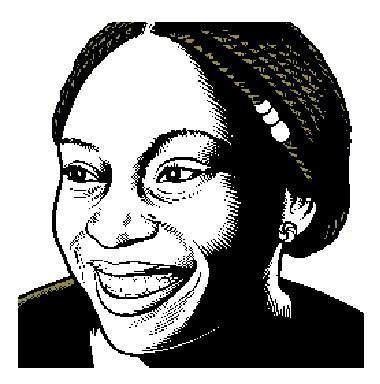“Things began to fall apart at home,” go the first lines of Chimamanda Ngozi Adichie’s acclaimed first novel, Purple Hibiscus, “when my brother, Jaja, did not go to communion and Papa flung his heavy missal across the room and broke the figurines on the étagère.” The reference to Things Fall Apart, Chinua Achebe’s masterpiece about colonialism destroying tradition, marks Adichie’s debt to her Igbo forebear but also signals her differing concerns. The sentence could perhaps be read to distill the larger ambitions of Adichie’s work thus far: to engage the themes that long defined African literature—the legacies of colonialism, the cause of nation-building—but to do so in a way expressive of a new generation’s ironic view of these questions, and in a way attuned to the intimate lives of her characters.
Purple Hibiscus, which won the Commonwealth Writers’ Prize in 2004 for best first book, depicts a teenage narrator and her brother coming to terms with their authoritarian Catholic father as Nigeria begins to fall apart under a military coup. Adichie’s second novel, Half of a Yellow Sun, is set during the Biafra war, the horrific 1967–70 conflict begun when south Nigeria’s Igbo citizens declared independence from their new country’s government in its Muslim north. The novel depicts the war through a story about how it is lived by a small coterie of characters—a pair of middle-class sisters (one pretty, one plain) and their respective mates (a revolutionary mathematician, an English ex-pat); a houseboy and a University master. Last year it was awarded the prestigious Orange Prize for fiction.
You have reached your article limit
Sign up for a digital subscription and continue reading all new issues, plus our entire archives, for just $1.50/month.
Already a subscriber? Sign in





